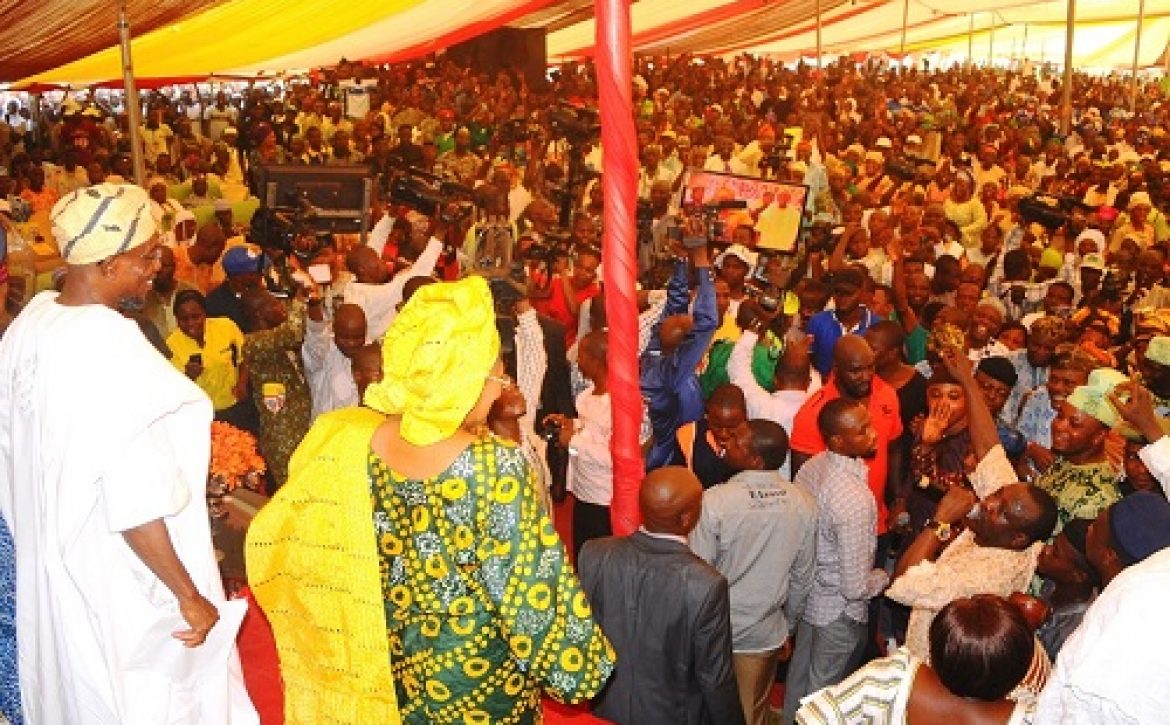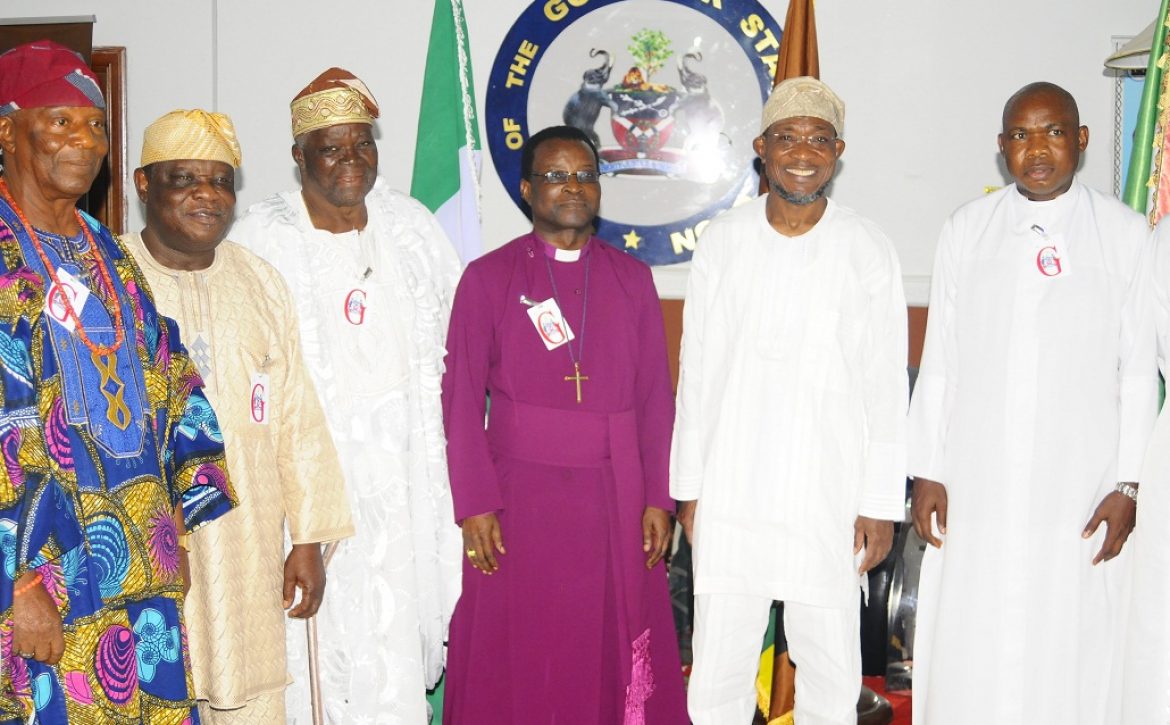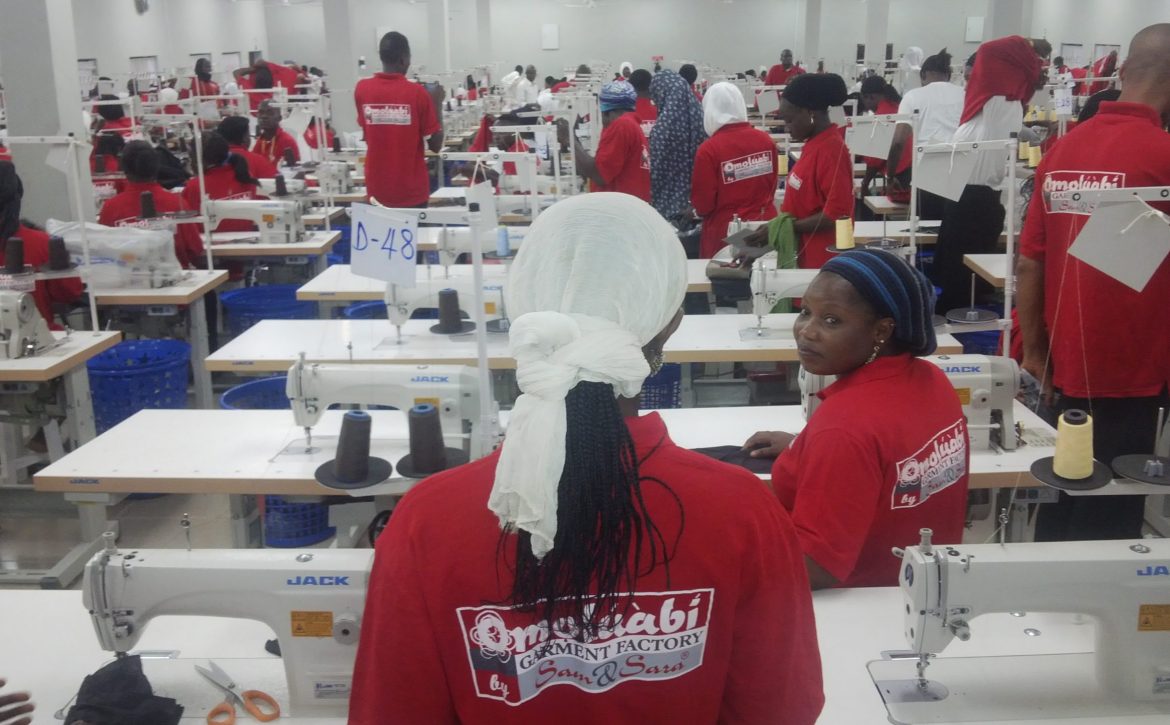The Managing Director of Osun State Investment Company (OSICOL), Alhaji Bola Oyebamiji, has attributed recent achievements recorded by the company to the various policies and programmes put in place by the Governor Rauf Aregbesola administration in the State of Osun.
Oyebamiji stated this last Thursday during the handing-over of a brand new L200 Mitsubishi bus presented to the company by Nestle Products Plc.
The organisation also emerged as the outfit with the highest volume of sales of the company’s products for the just-concluded quarter of the year.
The van presentation ceremony, which was held inside the expansive premises housing OSICOL’s corporate office located at the precincts Old Orisunmbare Market in Osogbo, the state capital, was graced by dignitaries including representatives of Nestle, management and staff of OSICOL, customers and well-wishers of the investment outfit.
It would be recalled that OSICOL was resuscitated into its current state of vibrancy by the Governor Rauf Aregbesola’s administration three years ago.
In his speech on the occasion of official presentation of the keys of the van, Nestle’s Regional Sales Manager, South West, Mr. Adewumi Adejumo, who did the presentation on behalf of his company’s management, commended the laudable achievements of the recipient, while encouraging them not to relent so as to carry the existing business partnership between the two companies to a higher pedestal.
Speaking further at the event, Alhaji Oyebamiji, while receiving the keys to the vehicle, thanked the management of Nestle, while promising greater performance for the present and future quarters.
The presented van, a brand-new L 200 Mitsubishi van with registration number LAGOS AAA 853 XH, branded in brilliant Maggi colours came in handy as the most recent in the long retinue of awards and presentations, which OSICOL has garnered since its resuscitation by the Rauf Aregbesola administration.
Fielding questions from journalists on the occasion, Alhaji Oyebamiji extolled the giant strides of the governor of the State of Osun, Ogbeni Rauf Aregbesola, who he said took the OSICOL project with utmost priority upon his assumption of office as governor three years ago.
He recounted how Governor Aregbesola mandated him to turn the fortunes of the hitherto moribund OSICOL around after providing all the necessary support.
According to him, the laudable achievements of the Aregbesola administration included the revamping and revitalization of OSICOL and its subsidiaries from grass to grace.
A cited case was that of the Livingspring Bulk Purchase Limited, a subsidiary of OSICOL, which had witnessed dramatic transformation within the space of time that the recent government intervention lasted.
It is placed on record that the Osun State Investment Company Limited has recorded strings of awards and laurels, including earlier awards by Nestle, Standards Organization of Nigeria, as well as those of the NIS.
Giving details of tentacles of operation of the company, Alhaji Oyebamiji revealed that the activities of OSICOL in providing ultimate consumers with quality end-products are not confined to the State of Osun or the South West territories; but stretch as far as Kano and other parts of the core-North.
The business helmsman also gave foresight to brighter future prospects for the company, based on the strength of investments, resources of kinds at its disposal, achievements made so far and the formidable structures already instituted.
Other dignitaries present on the occasion included Mr. Gani Owolawii, Head, Livingspring Bulk Purchase Limited; Mr. Oluseye Agboola, Manager, Nestle PLC; and Mrs. Harriet Amole, OSICOL’s AGM Corporate Affairs.
OSUN DEFENDER



















